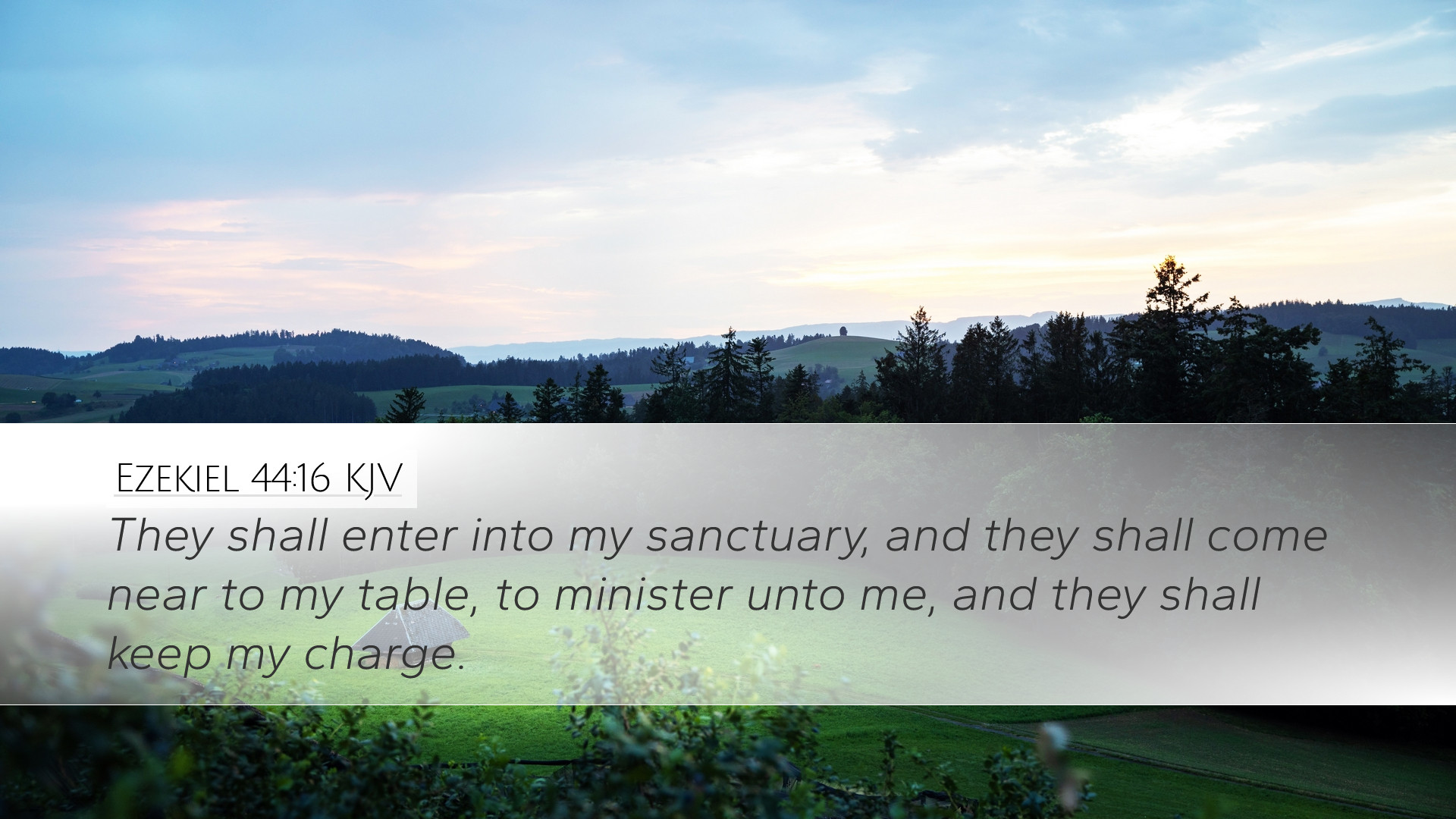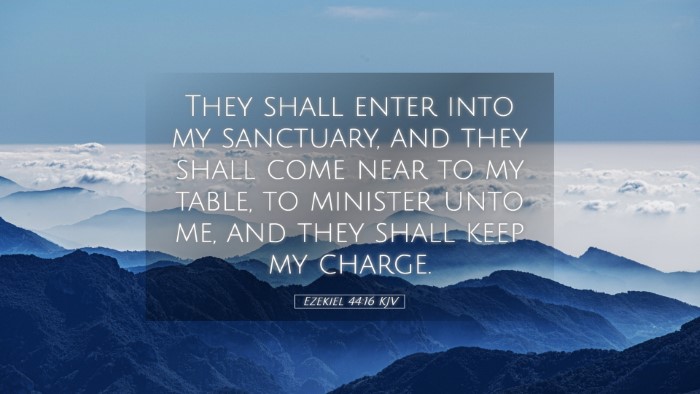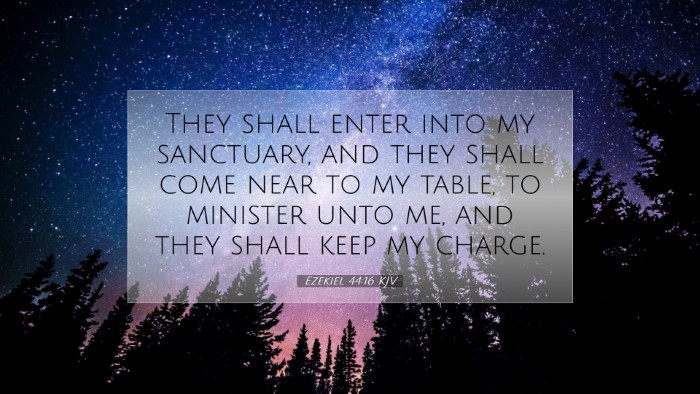Bible Commentary on Ezekiel 44:16
Ezekiel 44:16: "They shall enter into my sanctuary, and they shall come near to my table to minister unto me, and they shall keep my charge."
Introduction
The verse from Ezekiel 44:16 is a pivotal point in the prophetic message delivered by Ezekiel, focusing on the future restoration of worship and the divine order of priesthood in the temple. This commentary draws from esteemed public domain sources to explore the rich theological implications and historical context surrounding this verse.
Contextual Overview
Ezekiel’s vision of the temple (Ezekiel 40-48) provides a detailed description of a new temple structure and the divinely ordained roles within it. This passage occurs within the backdrop of a restored Israel, where the presence of God would dwell among His people once again. The stipulation for the priests underscores the importance of holiness and separation unto God.
Matthew Henry's Commentary
Matthew Henry emphasizes the privilege granted to the faithful priests who are allowed to "enter into my sanctuary." He highlights that this access signifies a close and intimate relationship between God and His chosen ministers. The mention of the "table" reflects the act of service and sacrifice that the priests are called to perform. Henry notes that the priests are not only mediators but are also expected to maintain the prescribed duties and rituals diligently.
Albert Barnes' Notes on the Bible
Barnes elaborates on the responsibilities of the priests by stating that they are to "keep my charge," indicating a sustained commitment to God’s commandments and regulations. He interprets this charge as a holistic approach to worship and service, which includes moral integrity and devotion. Barnes stresses that the priests must embody righteousness and holiness as they represent God to the people and the people to God.
Adam Clarke's Commentary
Adam Clarke provides a historical perspective by linking the activities of the priests during the temple service to the broader covenant relationships established throughout Israel's history. Clarke remarks that the strict guidelines for the priests set forth in this verse contrast with the previous generations’ lapses in following God’s directives. He posits that this restoration of proper worship practices speaks to God’s redemptive plan, emphasizing the necessity of purified worship and a consecrated priesthood.
Theological Implications
This verse highlights several profound theological themes:
- Access to God: The ability of the priests to enter the sanctuary illustrates the principle of access to God, a theme that resonates through Scripture, culminating in the New Covenant where all believers can approach God through Christ.
- The Role of the Priesthood: The duties of the priests signify the importance of mediators in worship. In the New Testament context, this points to Jesus Christ as the ultimate High Priest who offers Himself as the perfect sacrifice.
- Holiness and Separation: The call for priests to keep God’s charge reiterates the necessity for holiness among those who serve in ministry, an enduring call for all believers.
- Restoration and Redemption: The promise of a restored temple and priesthood reflects God’s desire to restore His people to a right relationship with Him, underscoring themes of redemption and hope.
Application for Pastors and Theologians
This verse serves as a reminder of the high calling for those in ministry and the responsibility that accompanies such a role. Pastors and scholars are urged to reflect on the implications of their access to God’s presence and the sanctity of their duties:
- Personal Holiness: Ministers should continually assess their own lives in light of God's requirements for holiness, ensuring that their conduct is reflective of their sacred calling.
- Commitment to Service: Serving at God's table is a privilege; thus, they must approach ministry with diligence and reverence, recognizing the significance of their role.
- Role as Mediators: Understanding the weight of representing God to people calls for prayerful consideration in teaching, counseling, and leadership.
- Hope and Encouragement: Leaders can find comfort in the assurance that God desires to dwell among His people and restore them continually, offering hope amidst challenges.
Conclusion
Ezekiel 44:16 encapsulates a rich tapestry of meaning that speaks to the character of God and the design of worship in the community of faith. Drawing insights from traditional commentaries helps illuminate the depth of this text, revealing an enduring call to holiness, service, and intimate relationship with the divine. For pastors, students, and scholars alike, this verse offers a foundation for understanding the implications of priestly service and the importance of maintaining faithfulness to God's charge in all aspects of ministry.


